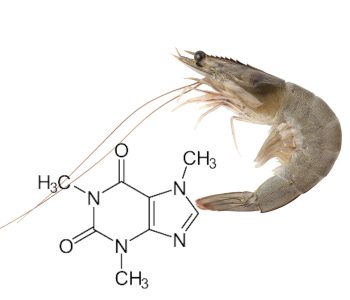Isoquinoline alkaloids found in pink poppy plants present themselves as a promising natural ingredient to improve growth performance and health in Pacific white shrimp according to a study carried out in Thailand.
Natural products derived from plants are increasingly being used as food additives in animal production; both for terrestrial and aquatic species. Medicinal plants usually have multiple biological activities such as: antimicrobial, anti-inflammatory, antioxidant, immunostimulant and appetite stimulant effects. These have the capacity to potentially improve growth performance and health status in animals.
Plant-derived isoquinoline alkaloids (IQs) are natural active components of several plants, including Macleaya cordata or pink plume poppy. The latter is a perennial herbaceous plant of the Papaveraceae family which is widely distributed throughout China.
⇒ It has long been used in traditional Chinese medicine as a topical agent for the treatment of inflammation and certain skin diseases.
The main bioactive isoquinoline alkaloids are:
- Sanguinarine
- Chelerythrine
|
They are well known for their anti-inflammatory and antimicrobial properties |
As for the distribution of sanguinarine and chelerythrine within the plant, the highest concentration of both alkaloids is found in the capsules (32.08 and 7.36 mg/g dry weight, respectively), followed by the aerial part (4.51 and 2.88 mg/g dry weight, respectively), and in very low concentrations within the seeds (0.07 and 0.02 mg/g dry weight, respectively)
Currently, isoquinoline alkaloids are considered promising feed additives that can help improve overall animal health and in turn replace antibiotic use for growth promoting purposes in livestock.
Objective
A study was carried out with purpose of investigating the effects of two different dietary formulas with IQ extracts.
Materials and methods
- The study was carried out in the Aquaculture Business Research Center Laboratory within the Faculty of Fisheries at Kasetsart University (Thailand)
- The extract was supplied in a powdered formula or in a granulated and water-soluble formula. It contained sanguinarine as the main active component, at concentration levels of 0.5% and 1%, respectively.
- Specific measurements were taken to determine the effects on growth, survival rate, immune response and resistance to bacterial infection caused by Vibrio parahaemolyticus in pacific white shrimp.
- Isoquinoline alkaloids were obtained from clean, sieved and ground M. cordata plant materials, using extraction solvents and ethanol.
- After extraction, the liquid extract was filtered and gently dried. Then it was ground and mixed with support materials.
About the 2 experiments
– Experiment 1:
- The effects of IQs on growth, survival rate and immune status of healthy prawns were investigated.
- The postlarvae were divided into 5 groups (4 replications/group and 100 shrimp/tank). They were fed 4 times a day for 30 days with a control feed. This control feed was comprised by a powder formula (200 or 300 mg/kg of feed) or granulated and water-soluble formulas (100 or 150 mg/kg of feed).
– Experiment 2:
- The effects of IQs on growth, survival rate and resistance of shrimp to Vibrio parahaemolyticus infection were assessed during this trial.
- The surviving shrimp from experiment 1 were redistributed into 6 groups (4 treatment groups plus positive and negative controls with 4 replications/group and 30 shrimp/tank). These were challenged with Vibrio parahaemolyticus through immersion at a concentration of 103 CFU/mL and fed the same diets for another 14 days.
Conclusions
